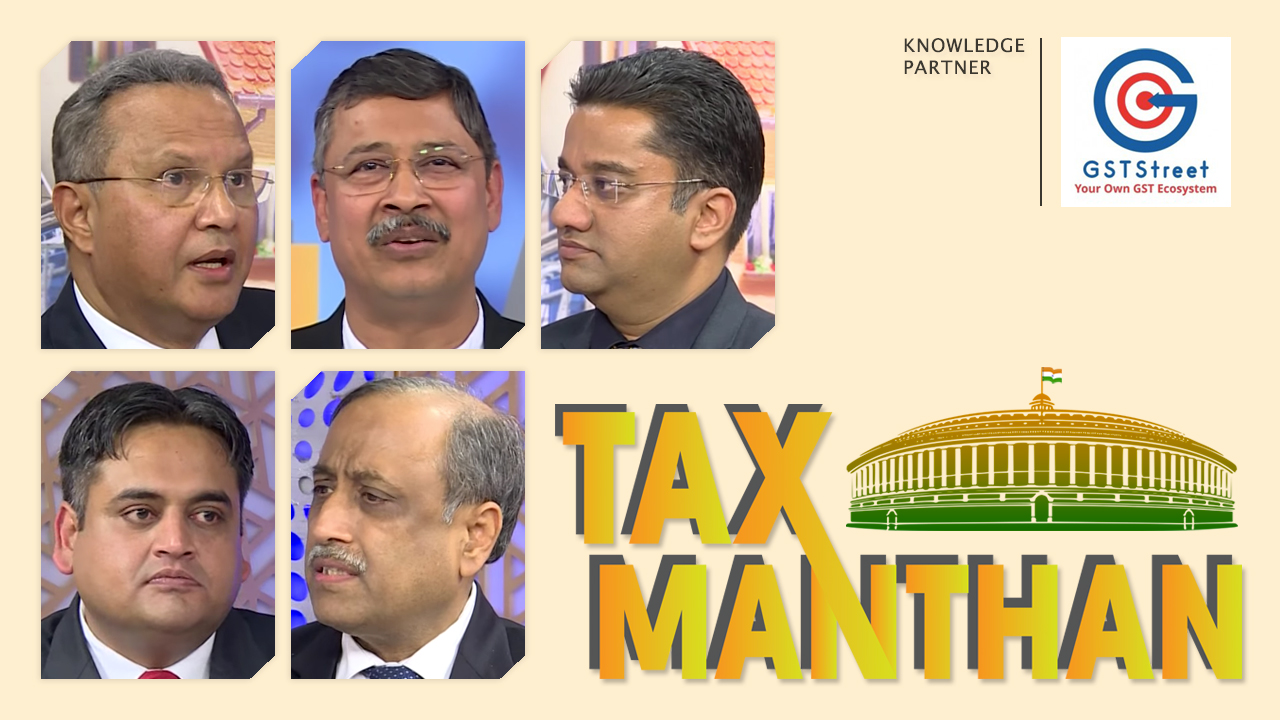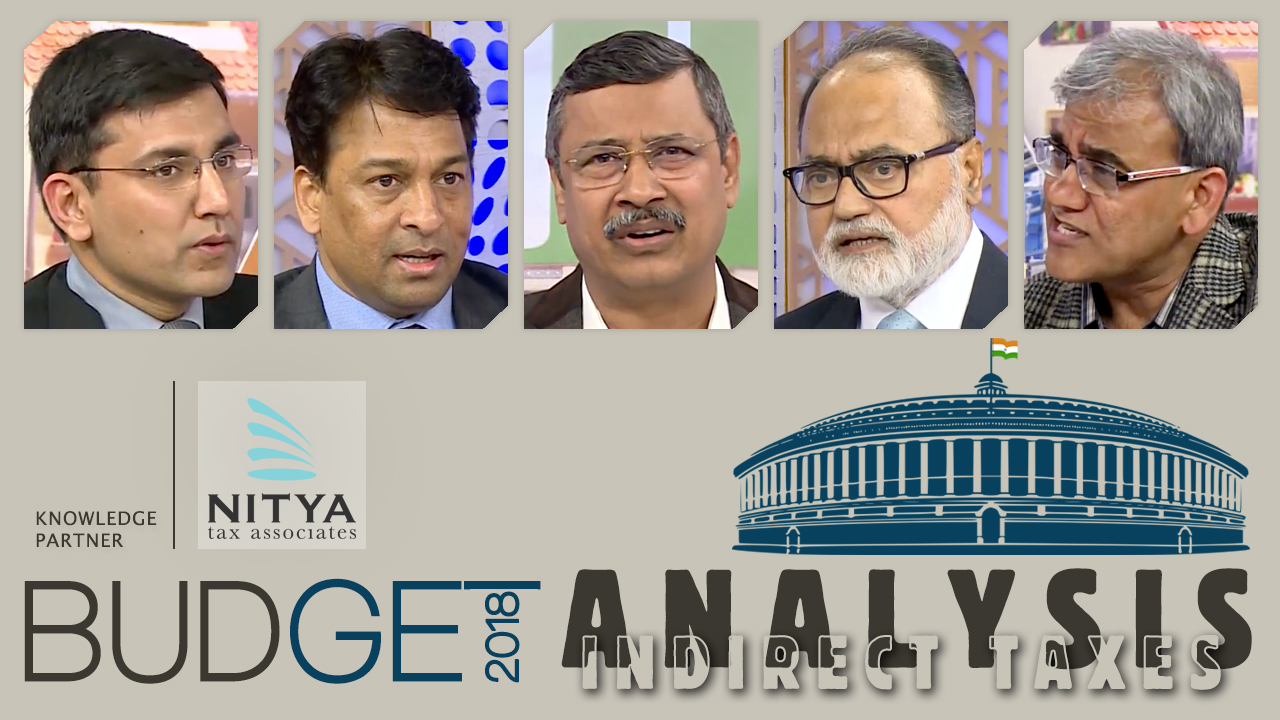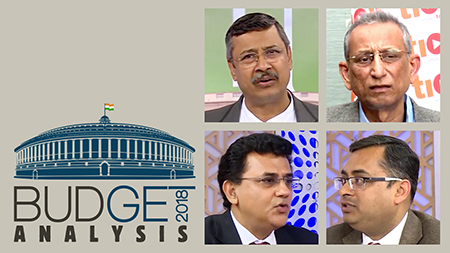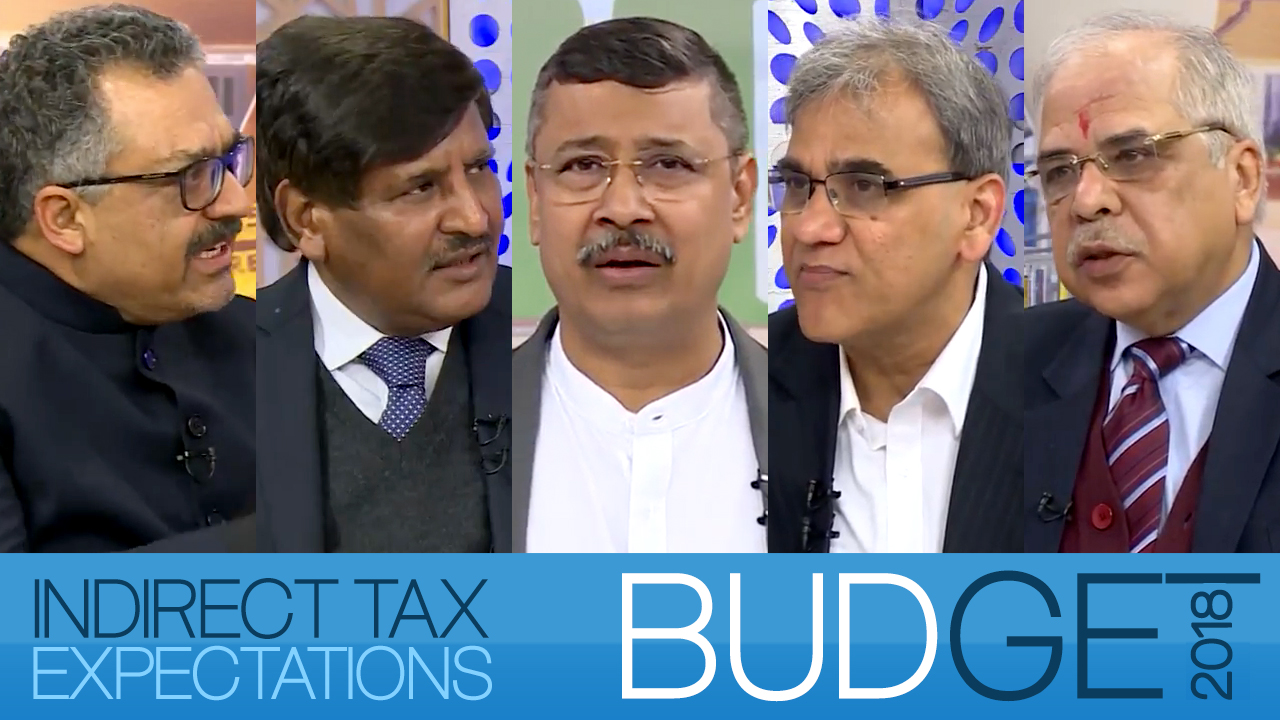 |
 |
2018-TIOL-NEWS-043 | Tuesday February 20, 2018
|
 |
 |
Dear Member,
Sending following links. Warm Regards,
TIOL Content Team
TIOL PRIVATE LIMITED.
For assistance please call us at +91-78385-94748 or email us at helpdesk@tiol.in. |
 |
|
 |
 |
 |
TIOL TUBE VIDEO |
 |
|
 |
DIRECT TAX |
 |
|
 |
 |
 |
 |
 |
 |
 |
|
Whether additions can be enlisted in case of unabated assessment, in absence of any incriminating evidence unearthed during course of search - NO: ITAT
Whether an incriminating material obtained prior to the date of search, can be roped in to make additions in case of settled assessments - NO: ITAT
Whether ambit of 2nd Proviso to Section 153A, extends to the incriminating evidence already available with the Investigation Wing before carrying out search proceedings - NO: ITAT - Assessee's appeal allowed
: DELHI ITAT
2018-TIOL-269-ITAT-CHD
Wire Communication System Vs ITO
Whether disallowance u/s 40(a)(ia) is called for, in case of non deduction of TDS by an individual for an year prior to June 01, 2007 - NO : ITAT - Assessee's appeal allowed: CHANDIGARH ITAT
2018-TIOL-268-ITAT-DEL
Bhartiya Gram Sewa Niketan Udyog Mandal Vs CCIT
Whether provisions of Section 10(23C) can be interpreted regressively to deny exemptions to educational institution, as long as the institution exists solely for educational purposes and not for profit - NO : ITAT - Assessee's appeal allowed : DELHI ITAT
2018-TIOL-267-ITAT-MAD
DCIT Vs Ontime Transport Company Ltd
Whether the form prescribed by CBDT for furnishing of information as required u/s 194C(7), can only be applied prospectively after it is being notified - YES: ITAT - Revenue's appeal dismissed: CHENNAI ITAT
2018-TIOL-266-ITAT-AHM
Cb Doctor Ventilators Pvt Ltd Vs ITO
Whether payments of employees' contribution to PF, deserves to be disallowed, in case it was not remitted within due date or the grace period as extended under the relevant Act - YES: ITAT
Whether commission payments does not deserve allowance, in case of absence of any evidence to establish justification for such payment - YES: ITAT - Assessee's appeal dismissed: AHMEDABAD ITAT
2018-TIOL-265-ITAT-JAIPUR
Bijaynagar Kraya Vikrya Sahakari Samiti Ltd Vs ITO
Whether mere reproduction of entries by way of transfer to general & education reserve as reflected in P&L A/c, is enough to conclude that AO has examined the allowability of these reserve transfers from the perspective of allowability for tax purposes - NO: ITAT
Whether when there is nothing on record to suggest that issue relating to cash payment has been examined in past from the perspective of section 40A(9), the contention regarding rule of consistency cannot be accepted - YES: ITAT
Whether it can be claimed that revisional jurisdiction u/s 263 has been exercised on borrowed satisfaction, when the CIT has examined the records and independently applied her mind to conclude that assessment order is erroneous - NO: ITAT - Case disposed of: JAIPUR ITAT
2018-TIOL-264-ITAT-PUNE
Emcure Pharmaceuticals Ltd Vs DCIT
Whether pharmaceutical companies are outside the scope of Circulars by Medical Council of India - YES: ITAT
Whether free sample of medicine only to prove efficacy and establish the trust of doctors on the quality of drugs, can be reckoned as freebies - NO: ITAT - Assessee's appeal allowed: PUNE ITAT
|
|
|
 |
   |
 |
|
 |
 |
INDIRECT TAX |
 |
|
 |
 |
 |
 |
 |
 |
 |
|
SERVICE TAX SECTION
2018-TIOL-605-CESTAT-MUM + Story
AC Nielson Org Marg Pvt Ltd Vs CST ST - World Bank and International Finance Corporation are part of United Nations, therefore, there is no need to resort to the definition of International Organization for extending the benefit of notification 16/2002-ST: CESTAT [para 5.1, 7] ST - CENVAT - Rule 2(l) of CCR, 2004 - Insurance Auxiliary service is used for indemnification of the officials such as Directors, employees, who play key role in providing the output service - The mandap keeper service used for conducting interviews for hiring employees, therefore, it is directly related to the overall providing of output service - Outdoor catering service is provided to the employees and clients of the appellant and the cost of the outdoor catering is incurred by the appellant, therefore, it qualifies as input service and the credit is admissible - The exclusion clause was introduced on 1.4.2011 and the period involved in present case is prior to that date: CESTAT [para 5.2]
ST - CENVAT - Rule 6 of CCR - if in a particular month against the liability of 20% if the appellant utilized less than 20% the remaining amount is available to the appellant for utilization in subsequent month. On considering overall period, the total utilization remains within 20% ceiling irrespective in some month utilization is less than 20% and in subsequent month, the utilization is more than 20%, the conditions of Rule 6(3)(c) of CENVAT Credit Rules, 2002, in our view stand complied with: CESTAT [para 5.3, 6] - Appeal allowed: : MUMBAI CESTAT 2018-TIOL-592-CESTAT-DEL National Institute For Career and Education (NICE) Vs CCE
ST - Assessee engaged in training, coaching and educational services - Revenue entertained a view that courses conducted by assessee in affiliation with Institute of Advance Studies of Gandhi Vidya Mandir, Rajasthan and Management courses in association with Australian Science and Management Academy (ASMA) with MMC, University of Ballarat, Australia are liable to service tax as commercial coaching and training services - As regards to assessee's role as part of Distance Learning Education study centre of Gandhi Vidya Mandir, Rajasthan, a deemed university, courses conducted by assessee do result in issue of a degree by Gandhi Vidya Mandir - No College or Institute issues independently any degree - It is university, who are recognized by UGC, who can issue degree - Impugned order falls in error in insisting that Institute itself should issue a degree - Accordingly, assessee is not liable to pay service tax on such courses - Regarding the issue with reference to courses conducted by assessee in collaboration with Ballarat University, Australia - The AIU is mandated to have recognition of equivalence degrees issued by foreign university, as stipulated by Ministry of Human Resources Development, Govt of India - Tribunal is unable to accept the submissions of assessee that courses conducted by them result in issue of degree or diploma which are recognized by law for the time being in force in India and in the absence of categorical evidence, conclusion made by the lower authorities cannot be interfered with - As a result, finding of the lower authorities upheld - Assessee have no malafide intention not to pay the taxes in time - Section 80 can be invoked for waiver of penalty - Accordingly, penalties are set aside: CESTAT - Appeals partly allowed : DELHI CESTAT
CENTRAL EXCISE SECTION
2018-TIOL-598-CESTAT-MUM + Story
CCE Vs Huhtamaki PPL Ltd
CX - Merely on the basis of statement given by one of the employees to the police that raw materials worth Rs.2crore were destroyed in fire, the same cannot be taken as gospel truth when the fact of the matter is no insurance claim of such amount was filed - appellant had also not claimed any remission of duty - respondent had in their letter dated 09.04.2010 given details of the damages that took place in the fire accident and nothing prevented the Revenue to investigate further to ascertain if there were more damages than that claimed - as there is no suppression on the part of the assessee, demand notice issued after almost five years is time barred - impugned order is proper and legal - Revenue appeal dismissed: CESTAT [para 4] - Appeal dismissed: MUMBAI CESTAT
2018-TIOL-597-CESTAT-MUM
Larsen And Toubro Ltd Vs CCE
CX - CENVAT - Rule 2(l) of CCR, 2004 - Supply of tangible goods service at premises other than that of appellant - Production undertaken by appellant's job worker requires use of certain capital goods which, similar to that used in their own premises, are supplied on contracts entered into with providers - Rule 4 of CCR, 2004 does not limit the availment to such as are received only in the manufacturer's premises - Such locational prescription relevant to goods is not mandated for services that are utilized in manufacture - in view of the above statutory framework, denial of CENVAT credit as upheld in the impugned order is without authority of law and, therefore, set aside - appeal allowed: CESTAT [para 3, 4] - Appeal allowed: MUMBAI CESTAT
2018-TIOL-596-CESTAT-MUM
Mahindra Cie Automotive Ltd Vs CCE
CX - CENVAT - Rule 2(l) of CCR, 2004 - Goods Transport Agency Service - Period June 2014 to December 2014 - Pursuant to the insertion of definition of ‘place of removal'in the CENVAT Credit Rules, 2004 as clause 2(qa) with effect from 11th July 2014 by notification 21/2014-CX(NT) , there is no bar on the premises of the customer being considered as the place of removal for the purposes of availment of credit - lower appellate authority has interpreted the definition erroneously - Impugned order is set aside and appeal is allowed: CESTAT [para 3, 4] - Appeal allowed: MUMBAI CESTAT
2018-TIOL-595-CESTAT-MUM
Saf Yeast Company Pvt Ltd Vs CCE
CX - Valuation - Issue is whether the yeast cleared in packform from the factory can carrying a marking ‘for industrial use only and specially made for bakery industry only' will be assessable under Section 4 or Section 4A of the CEA, 1944.
Held: Issue whether the MRP is legally required to be affixed on the product in question has been decided by the department concernedof Government of Maharashtra wherein it was held that in view of the packing of the product, the product is exempted under Rule 34 of provisions of Standard of Weights and Measures Rules - Accordingly, there is no need to affix the MRP on the product - moreover, in view of the order passed by the Bombay High Court upholding the order dated 26/09/2005 of Government of Maharashtra, the issue has been settled that in the facts of the present case, the appellant is exempted from affixing MRP under Rule 34 of Standards of Weights and Measures (Packaged Commodities) Rules, 1977 - Consequently, they are not required to affix the MRP, as per the provisions of Standards of Weights and Measures, Act 1976 - Accordingly, valuation of the goods in question cannot be governed by Section 4A whereas it is governed by Section 4 of the CEA, 1944 - demand raised by the revenue invoking Section 4A is incorrect and illegal -Impugned order is set aside and Appeal is allowed: CESTAT [para 4] - Appeal allowed: MUMBAI CESTAT
2018-TIOL-594-CESTAT-MUM
Ultra Tech Cement Ltd Vs CCE
CX - CENVAT - Railway siding was laid down from the factory premises up to the Railway station which is necessary for inward transportation of the inputs and outward transportation of their final product - As such, no merits in the Revenue's stand - pre-stressed cement sleepers are Cenvatable items - Demand is also hit by limitation as credit was being availed by reflecting the same in the CENVAT credit account which is a part of the statutory documents, therefore, no malafide can be attributed to invoke larger period - impugned order is set aside and appeal is allowed on merits as well as on limitation: CESTAT [para 6 to 8] - Appeal allowed: MUMBAI CESTAT
2018-TIOL-593-CESTAT-DEL
Videocon Industries Ltd Vs CCE
CX - Assessee engaged in manufacture of refrigerators in their unit at Shahjahanpur with brand name 'Videocon' and 'Elctrolux Kelvinator' - Dispute is with reference to Cenvat credit availed by assessee on repair and maintenance service, IPR service and advertisement service in their unit at Shahjahanpur - Revenue entertained a view that these input services were not exclusively attributable to goods manufactured and cleared by assessee at their Shahjahanpur unit - Though assessee company is engaged in manufacture of various items, the service provided by M/s Tekcare on which service tax has been paid, is with reference to products manufactured and cleared by Shahjahanpur unit only - Admittedly, certain corrections were sought to be made in agreement by assessee by way of a corrigendum dated 01.10.2010 - Various objections and shortcomings were recorded by original authority against validity of such corrigendum - Even without reference to corrigendum, the fact, as assorted by assessee, could not be brushed-aside - In view of the evidences and supporting documents submitted by assessee to assert that repair and maintenance service received by them is only with reference to products manufactured at Shahjahanpur unit, denial of credit is not justifiable.
On the issue of IPR services, assessee availed the credit based on invoices issued by M/s PE Electronics Ltd for payment of royalty - Credit was denied only on the ground that the whole of the service may not pertain to goods manufactured by Shahjahanpur unit only - In this connection, assessee is having continuous agreement for using 'Electrolux' trade mark - Lower authority is not correct in holding that trademark licence is also for goods procured from other units and marketed by assessee - Agreement is mainly for use of trademark for manufacturing and selling - The trademark 'Electrolux' cannot be used for the trading goods in terms of agreement - Terms of agreement are to be read together to understand scope of the same.
In respect of credit availed on advertisement service, admittedly the Kelvinator brand products are manufactured at other units of assessee also - However, credit availed by assessee is supported by purchase orders and invoices issued to assessee for advertisement services - In such situation, denial of credit is not justifiable: CESTAT - Appeals allowed: DELHII CESTAT
CUSTOMS SECTION
2018-TIOL-313-HC-DEL-CUS
Jitender Bhasin Vs CC
Cus - the assessee had appealed to the Tribunal against an O-i-O, which was apparently not served to it - Later the assessee obtained a copy of the O-i-O - Although the assessee claimed to have filed the appeal in time, the Tribunal sought explanation for the delay in doing so - The Tribunal dismisses the assessee's appeal on the succeeding date of hearing - The assessee then filed an application for rectification u/s 129A (7) of the Act, claiming that the appeal preferred was within the prescribed period of three months from the date of communication of the O-i-O - Hence, it was claimed that there was an error apparent in the Tribunal's order, since the issue was whether the appeal was preferred within limitation period, and not whether delay in filing of the appeal should be condoned - The assessee contended that no question arose w.r.t. condonation of delay - However, such application was allowed - Subsequently, on directions of the Tribunal, the assessee filed an application for condonation of delay - However, the same was dismissed as lacking merit.
Held - Such reasoning cannot be sustained in view of the peculiar facts and circumstances of the present case - The Tribunal order allowing the application attained finality and even if the such order was contrary to law, the same cannot be reviewed or recalled - Moreover, the principal issue arising for consideration is different - The primary aspect, which has to be examined and answered, is the date on which the O-i-O was communicated and served to the assessee - Also whether the stand of the assessee that such order was communicated and served for the first time much later, was correct - The assessee claimed that the appeal was not time barred - Such factual dispute would have to be examined by the Tribunal - Thereupon, the Tribunal would have to decide whether or not the appeal preferred by the assessee was within limitation - The issue would also arise whether limitation period would commence or taken from the date of the order, date on which the order was issued or sent by post or the date on which the order was served - The second issue is a question of law - The factual and legal aspects are interconnected - Should the Tribunal conclude that the date of the order or the date of issue would be the starting point of limitation, then the Tribunal would have to examine and decide the question of condonation of delay - Hence question of law in favour of the assessee & matter remanded to the Tribunal for determination of the same: High Court (Para 5-13, 14,16) - Case Remanded
: DELHI HIGH COURT
2018-TIOL-591-CESTAT-MUM Nirma Ltd Vs CC
Cus - Appellant imported Rommelag Bottle Packing Machine classifying it under heading 8422 3000 to claim the benefit of notification no. 21/2002-Cus at serial no. 237 - classification was not accepted by the assessing officer on the ground that the primary function of the imported machine was the production of plastic container from resins of polyethylene/polypropylene and, in accordance with note 4 in section XVI of the schedule, would be classifiable under 8477 3000 - Assessable value was also enhanced to include the erection, installation and commissioning charges - original authority determined the differential duty on both counts to be Rs.10,66,483/-, said order was upheld by Commissioner(A), therefore, appeal before CESTAT.
Held: Issue of classification has been settled by Tribunal in order no. A/89917/17/CB dated 27th September 2017 in appellants own case, viz., that for alteration of declared classification the pre-requisite of justification is absolutely necessary - as regards valuation, the aforesaid charges of erection, installation and commissioning have been shown separately in the purchase order and there is nothing on record to indicate that this was a condition implicit in the sale to justify invoking rule 10 of the Customs Valuation (Determination of Price of Imported Goods) Rules 2007 - impugned order set aside and appeal allowed: CESTAT [para 5, 6] - Appeal allowed: MUMBAI CESTAT
|
|
|
 |
   |
 |
|
 |
 |
MISC CASE |
 |
|
 |
 |
 |
 |
 |
 |
 |
|
2018-TIOL-312-HC-DEL-PMLA
Rajbhushan Omprakash Dixit Vs UoI
PMLA - the petitioner herein is the director of a group of entities, which were subjected to search operations u/s 132 of the Act - From documents seized, it was alleged that sums of money had been paid to government servants - Thus the CBI filed FIR alleging offences u/s 13(2) r/w Section 13(1)(d) of the Prevention of Corruption Act, 1988 r/w Section 120-B of the IPC - Since the alleged offences were also those mentioned in the Schedule to the PMLA, 2002, an Enforcement Case Information Report (ECIR) was also recorded, for offence of money laundering u/s 3 of PMLA punishable u/s 4 of PMLA - Further statements of certain persons were recorded in the such ECIR u/s 50 (2) & 50(3) of PMLA - A further FIR was registered against several entities & persons, including the petitioner, alleging that huge credit facilities and loans were obtained by the petitioner's firm & its sister concerns from Andhra Bank & other banks, based on forged & fabricated documents in criminal conspiracy with the accused persons - Later the Enforcement Directorate (ED) filed an application u/s 70 of the CrPC r/w Section 65 of the PMLA, seeking a non-bailable warrant against the petitioner - Subsequently, the same was issued and the petitioner was arrested & remanded in custody of the ED - Thereupon, the petitioner filed the present writ of Habeas Corpus claiming that his arrest & detention was contravening of Articles 14, 21 & 22 of the Constitution of India - The petitioner also sought copies of the ECIR issued by the ED, undertaking investigation into alleged money laundering by the petitioner - He also sought copies of the application for issue of warrant and the grounds of arrest recorded.
Held - the first issue at hand is whether offences committed under the PMLA are cognizable - Considered the speech of the Finance Minister, while addressing a debate in parliament regarding cognizance of an offence u/s 45 of the Act, before and after its amendment - Comparing the provisions of Section 45 before & after its amendment in 2005, although the heading of Section 45 has not changed, the provision itself has - Section 45(1)(a) as it stood prior to July 1, 2005 was deleted and this was now consistent with the second proviso, which stated that the special court would not take cognizance except on a complaint in writing - Notably, in Vakamulla Chandrashekhar v. Enforcement Directorate , a Division Bench of this Court came to the opposite conclusion and held that notwithstanding the 2005 amendment to Section 45 PMLA, there is no positive indication in Section 45 that the offences under the PMLA had become non-cognizable - The Bench held that even if the offence was no longer cognizable for the purposes of the Code the police cannot take cognizance for the said offence - Thus, the said conclusion in Vakamulla Chandrashekhar v. Enforcement Directorate requires reconsideration since it is not in consonance with the express legislative intent that is so evident not only on a plain reading of the amended Section 45 - Considering decision in Chhagan Chandrakant Bhujbal v. Union of India, the Bombay High Court held that it did not matter whether the offence was cognizable or non-cognizable, since the power of arrest conferred u/s 19 of the PMLA was not restricted by such characterisation - The second issue is whether Chapter XII of the CrPC would apply to the PMLA - Considering various precedents on the issue, it appears that there is no alternative to the ED but to follow the CrPC, except where there are specific provisions in the PMLA that provide an alternative procedure - Under Articles 21 and 22 of the Constitution, the powers under the PMLA in relation to the offences under the PMLA, have to be governed by the CrPC, if not by the PMLA - The same is expressly recognised and acknowledged by Section 65 of PMLA - Thus the ED cannot choose to not follow the CrPC in an area where the PMLA is silent - Here again this Court is unable to subscribe to the contrary conclusion in Vakamulla Chandrashekhar - Regarding the third issue as to powers of arrest under the PMLA, this court in Moin Akhtar Qureshi v. Union of India had held that u/s 19(1) of the PMLA, grounds of arrest need not be provided at time of arrest & that the same would not render the arrest illegal - However, such finding is contrary to Articles 21 & 22 of the Constitution - The petitioner has right to know grounds of his arrest & his bail application is dependent upon it - The ED has no clear reason for denying the same - Such issues referred to the Larger Bench of this Court - As it is, the Apex Court in Nikesh Tarachand Shah v. Union of India struck down the restrictive conditions in Section 45 (1) of PMLA, w.r.t. the grant of bail - Hence, petitioner be released on bail subject to furnishing of personal bond & other conditions: High Court (Para 5-11,13,16,30,31,34,35,40,41,51,52,53,56,59,62) - Writ Petition Partly Allowed:
DELHI HIGH COURT
|
|
|
 |
   |
 |
|
 |
|
|
 |
 |
|
 |
 |
TIOL PRIVATE LIMITED.
TIOL HOUSE, 490, Udyog Vihar, Phase - V,
Gurgaon, Haryana - 122001, INDIA
Board : +91 124-2879600
Fax: +91 124-2879610
Web: http: //www.taxindiaonline.com
Email: updates@tiol.in
__________________________________
CONFIDENTIALITY/PROPRIETARY NOTE.
The Document accompanying this electronic transmission contains information from TIOL PRIVATE LIMITED., which is confidential, proprietary or copyrighted and is intended solely for the use of the individual or entity named on this transmission. If you are not the intended recipient, you are notified that disclosing, copying, distributing or taking any action in reliance on the contents of this information is strictly prohibited. This prohibition includes, without limitation, displaying this transmission or any portion thereof, on any public bulletin board. If you are not the intended recipient of this document, please return this document to TIOL PRIVATE LIMITED. immediately |
 |
|
 |










